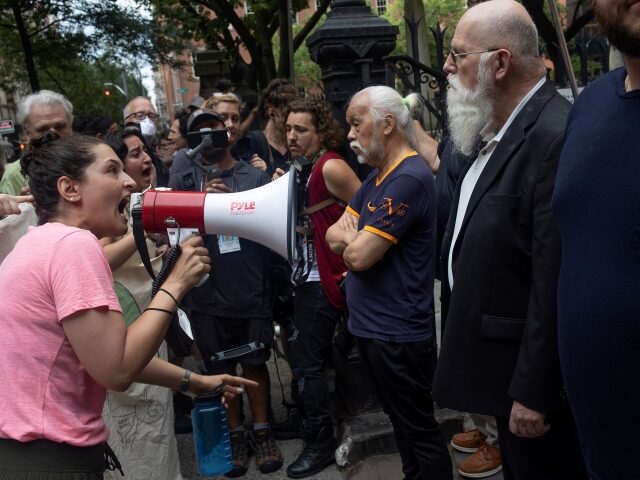Less than ten percent of U.S. companies are joining the woke wars and offering a public position on abortion following Dobbs v. Jackson Women’s Health and the Supreme Court ultimately overturning Roe v. Wade, a survey by the Conference Board shows.
The survey examined 300 public, private, and nonprofit corporations in the U.S., examining how they respond to social issues.
Over the years, companies have not been shy about publicizing their positions on issues such as “racial equality” and “LGBT rights.”
According to the survey, since 2020, 61 percent of companies have taken a public stance on racial equality, and 44 percent have taken a position on LGBT issues, as was recently seen during June, or what activists have deemed pride month. Another 40 percent have taken a public stance on the Chinese coronavirus and vaccinations, and 39 percent have taken a public position on “gender equality.”
However, the survey found that companies have been particularly mum on abortion following the Dobbs decision. Just eight percent have taken a public stance.
“Of companies that have received pressure to respond to the Supreme Court’s decisions on reproductive rights and guns, 78 percent say the pressure has come from individual employees, and 55 percent cite employee resource groups (ERGs),” the survey found:
The criteria for deciding whether to address a social issue should include more than “company values.” Sixty-one percent of companies cite the issue’s relationship “to the company’s core values” as a criterion for deciding whether to take a stand on the issues raised by the Supreme Court’s decisions. Just 29 percent of companies cite the relationship to the company’s business, and 23 percent mention the ability to make a meaningful impact. If a company bases its decision exclusively on corporate values, it can create a virtually unlimited license (and perceived obligation) to take stands on social issues. And if a company declines to take a stand, it exposes itself to questions from employees and other key stakeholders about why the corporation’s values do not match their own. That is why it can be very helpful for a company to consider other factors, such as the connection with the company’s business and the ability to make an impact, in deciding whether to address a particular issue.
The findings come weeks after the Supreme Court overturned Roe v. Wade, prompting some companies, such as DICK’S Sporting Goods, to offer pregnant women who want an abortion up to $4,000 in travel expenses as they seek to terminate their pregnancies out of state. Notably, DICK’S would not say if it would offer $4,000 to women who chose to deliver their babies.
Further polling suggests that Americans are disillusioned with companies wading in political waters, as 87.1 percent, said it is at least somewhat likely they would stop using the product or service of the company that advocates for something they disagree with, a May Convention of States Action/Trafalgar survey found.

COMMENTS
Please let us know if you're having issues with commenting.